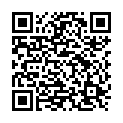|
|
|
| Module code: MST504 |
|
2V+2PA (4 hours per week) |
|
4 |
| Semester: 5 |
| Mandatory course: yes |
Language of instruction:
German |
Assessment:
Project work
[updated 06.08.2012]
|
MST504 Mechatronics and Sensor Technology, Bachelor, ASPO 01.10.2005
, semester 5, mandatory course
|
60 class hours (= 45 clock hours) over a 15-week period.
The total student study time is 120 hours (equivalent to 4 ECTS credits).
There are therefore 75 hours available for class preparation and follow-up work and exam preparation.
|
Recommended prerequisites (modules):
MST101 Mechanics, Electricity, Optics
MST301 Vibrations and Waves
[updated 06.08.2012]
|
Recommended as prerequisite for:
MST602 Sensor Engineering Project
[updated 12.08.2012]
|
Module coordinator:
Prof. Dr. Martin Löffler-Mang |
Lecturer: Prof. Dr. Martin Löffler-Mang
[updated 01.10.2005]
|
Learning outcomes:
Final module covering optics.
Building on what was learned in the more physics-oriented modules “Mechanics, Electricity, Optics” and “Vibrations and Waves”, this module aims to introduce students to real, practical applications of optical sensors. Students will be introduced to the most important sensor elements and how they can be combined into complex systems. Students will undertake a project in which they construct their own sensor system.
[updated 06.08.2012]
|
Module content:
Part I – Fundamentals: Electromagnetic waves; Term diagrams and energy bands; Quantum optics; Diffraction and interference; Polarization; Aberrations and resolution; Optical coatings
Part II – Elements of optical sensors: LEDs; Lasers, Laser diodes, Photodiodes, CCD sensors; Photomultipliers; Solar cells; Optical waveguides; Optocouplers; Displays
Part III – Optical sensor systems: Light barriers; Triangulation; CD player; Barcode reader; Fibre-optic sensors; Spectrometer; Particle measuring technology; Flow measurement; Endoscopy; Telescopes; Integrated optics
[updated 06.08.2012]
|
Teaching methods/Media:
Lectures and project work
[updated 06.08.2012]
|
Recommended or required reading:
Jansen: Optoelektronik
Eichler: Laser
Young: Optik, Laser, Wellenleiter
Litfin: Technische Optik
Ruck: Lasermethoden in der Strömungsmesstechnik
[updated 06.08.2012]
|


